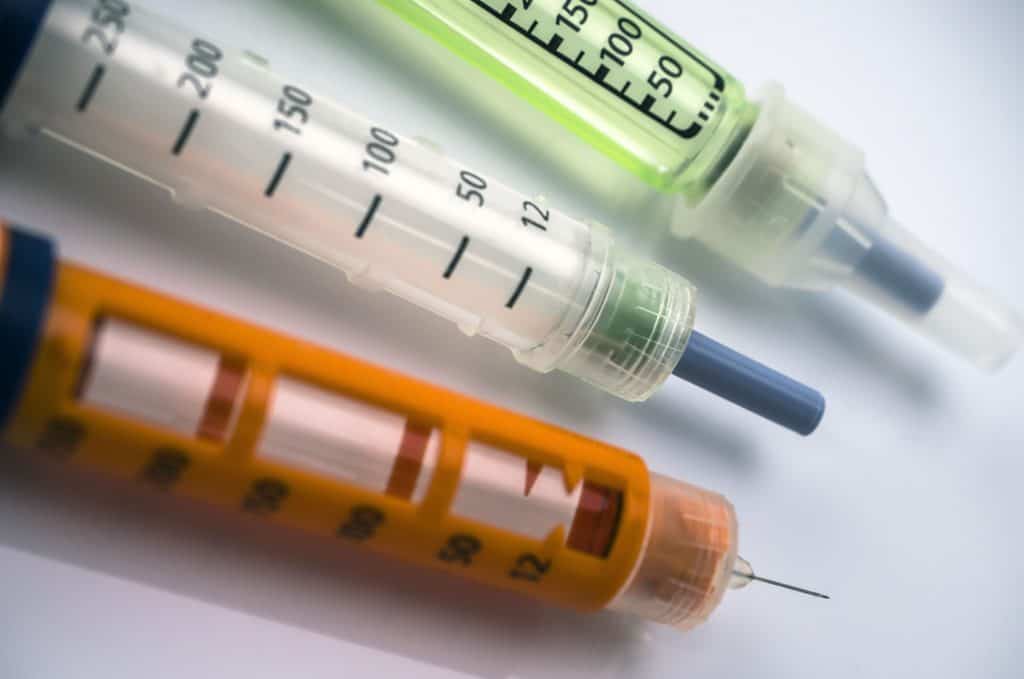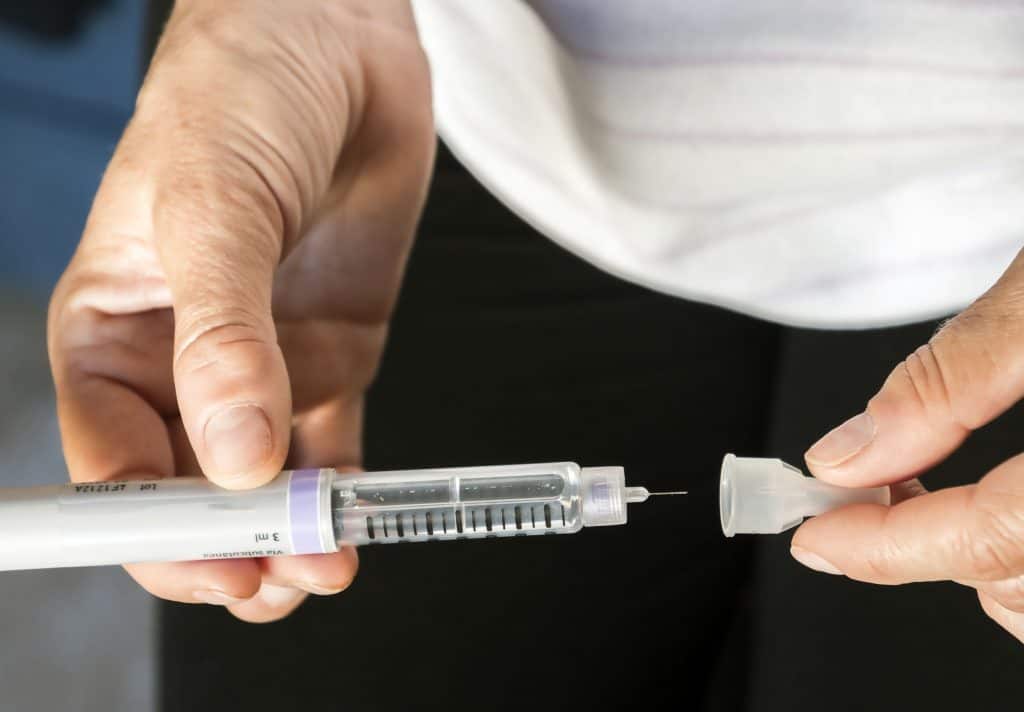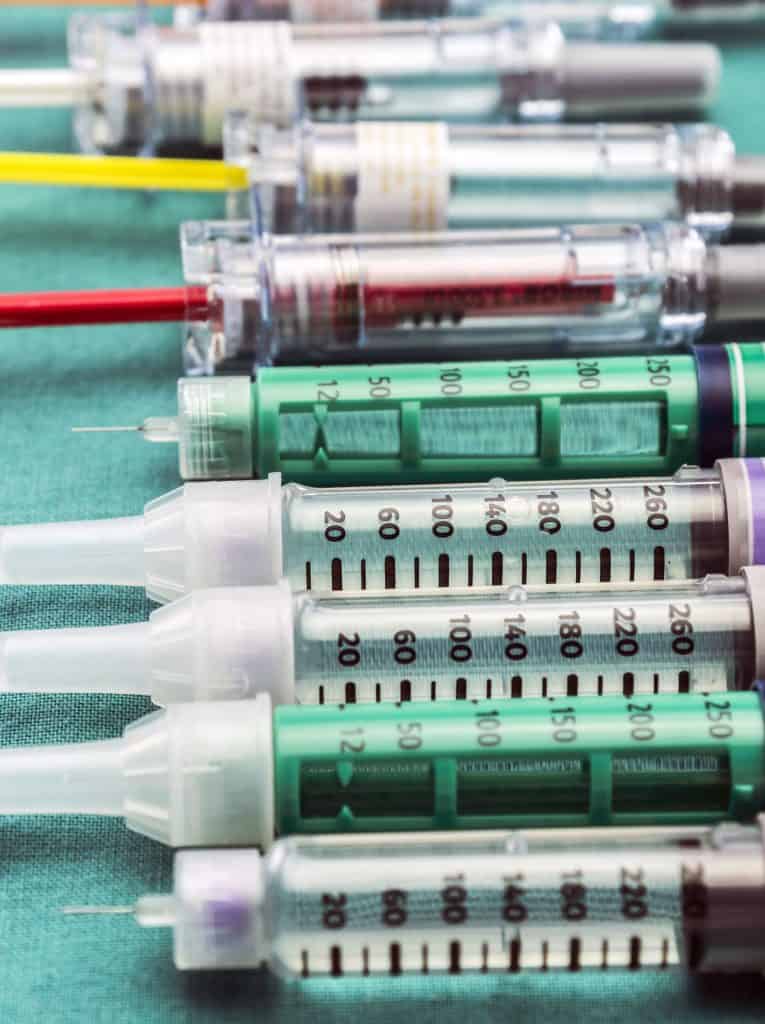What are the Types of Insulin? Brand Names, Which One is for You?
Posted by Prescription Hope - See Editorial Guidelines (Last Updated On: Fri Apr 28 2023)
Navigating life with a new diabetes diagnosis and adequately taking care of your condition can be difficult, especially when you don’t know the differences in insulin. With there being six different types of insulin and many different brand-names for each type, it can get a bit confusing. So, this article will give you an understanding of the types of insulin and what each is used for. What are the Types of Insulin? There are six different types of insulin, which include rapid-acting, regular, intermediate-acting, long-acting, ultra-long acting, and inhaled insulin. Each type of insulin has its own recommendation for how it should be used and administered. The type of insulin you use should be determined by both you and your doctor. Before we get into the details of each type of insulin, we first need an understanding of what insulin is.
Overview of Insulin
 Insulin is a human hormone produced by the pancreas that regulates blood sugar. Insulin is responsible for unlocking cells so that the cells can uptake glucose. Cells require sugar for energy, but the cells cannot directly pick up glucose from the blood.
So, when your pancreas senses a rise in blood sugar, it starts producing and releasing insulin. Insulin will then attach to the cells and signals them to absorb glucose. Therefore, insulin is often referred to as the key that unlocks the cells for glucose to enter. The cells can then use the sugar for energy.
If your body has an excess of sugar, then insulin will store the glucose in the liver for when your body requires it. Without insulin, you can experience high blood sugar (hyperglycemia).
Insulin is a human hormone produced by the pancreas that regulates blood sugar. Insulin is responsible for unlocking cells so that the cells can uptake glucose. Cells require sugar for energy, but the cells cannot directly pick up glucose from the blood.
So, when your pancreas senses a rise in blood sugar, it starts producing and releasing insulin. Insulin will then attach to the cells and signals them to absorb glucose. Therefore, insulin is often referred to as the key that unlocks the cells for glucose to enter. The cells can then use the sugar for energy.
If your body has an excess of sugar, then insulin will store the glucose in the liver for when your body requires it. Without insulin, you can experience high blood sugar (hyperglycemia).
Who Needs Insulin?
In a person with diabetes, the pancreas does not produce enough insulin, or the cells do not respond to insulin (insulin resistance). So, people with diabetes are left with unused glucose in the bloodstream, which can cause major health complications. Therefore, those with diabetes require the injection of insulin to control their condition. Some patients with type 2 diabetes may be able to control their condition with diet and exercise or with oral medications. Those with type 1 diabetes must control their condition with insulin therapy. If they are using multiple daily injections instead of a pump, then they may require more than one type of insulin. The dose of insulin that you need for your specific condition should be determined with the help of your doctor.Types of Insulin
There are six different types of insulin, all of which serve a different purpose and work differently. Here are the six types of insulin described and the most common brands.Rapid-Acting Insulin
Rapid-acting insulin starts working within 15 minutes of injecting and peaks after about an hour. This type of insulin will continue to work for about 2-3 hours. Rapid-acting insulin may also be called mealtime insulin or fast-acting. Common brands of insulin that are rapid-acting include Fiasp, NovoLog, Humalog, and Apidra.Regular Insulin
Regular insulin may also be known as short-acting insulin. Regular insulin starts working within about 30 minutes after injection and takes about 2-4 hours to peak. It will last about 6-8 hours. Common brand names of regular insulin include Humulin R and Novolin R.Intermediate-Acting Insulin
Intermediate-acting insulin typically starts working within 2-4 hours and peaks between 4-10 hours after injection. It lasts between 12 and 18 hours. Brand names of intermediate-acting insulin include Humulin N and Novolin N.
Long-Acting Insulin
Long-acting insulin may also be called basal or background insulin. This insulin will start working with 1-2 hours, does not peak, and lasts a full 24 hours. Brand names of long-acting insulin include Lantus, Basaglar, Levemir, or Toujeo.Ultra-Long Acting Insulin
Ultra-long acting insulin provides individuals with a steady rate of insulin for up to 42 hours. This insulin typically starts to work within 30-90 minutes. Tresiba is an ultra-long acting insulin.Inhaled Insulin
Inhaled insulin is a fairly new insulin that starts working within 12-15 minutes and peaks within about 30 minutes. It continues to work for about 1.5-3 hours. This type of insulin is breathed into the lungs using an oral inhaler. Afrezza is the only inhaled insulin available to patients.Which Type of Insulin Can be Used in a Pump?
Many of those that have diabetes, particularly type 1, use an insulin pump. It provides more convenience and ease of use, while also helping individuals gain better control over their blood sugar fluctuations. However, not every type of insulin can be used in an insulin pump. For example, a long-acting insulin should never be used in a pump, unless otherwise specified by your doctor. Rapid-acting insulin and regular insulin should be the only types of insulin used in a pump. This is because the pump will provide a continuous dose of insulin every hour, which replaces the need for long-acting insulin. This is known as the basal rate. The patient can manually enter how much insulin is needed for each meal or correction.Which Type of Insulin is Right for You?
 With all the types of insulin available, determining which one is right for you can be difficult. It is important to note here that this decision must be made between you and your doctor.
If you have type 2 diabetes or gestational diabetes, then your condition can be controlled in different ways. In this case, if your condition requires insulin intervention, then you may just need one type of insulin. For example, many patients with type 2 diabetes just need long-acting insulin or ultra-long acting insulin. Others may only require rapid-acting insulin to keep their blood sugars controlled after meals.
The exact brand name of insulin that is right for you may depend on your insurance. For example, though NovoLog and Humalog are both rapid-acting insulins, your insurance may only cover NovoLog and not Humalog. Therefore, the insulin that is right for you is the most affordable one.
With all the types of insulin available, determining which one is right for you can be difficult. It is important to note here that this decision must be made between you and your doctor.
If you have type 2 diabetes or gestational diabetes, then your condition can be controlled in different ways. In this case, if your condition requires insulin intervention, then you may just need one type of insulin. For example, many patients with type 2 diabetes just need long-acting insulin or ultra-long acting insulin. Others may only require rapid-acting insulin to keep their blood sugars controlled after meals.
The exact brand name of insulin that is right for you may depend on your insurance. For example, though NovoLog and Humalog are both rapid-acting insulins, your insurance may only cover NovoLog and not Humalog. Therefore, the insulin that is right for you is the most affordable one.
Side Effects of Insulin
The most common side effect of insulin is low blood sugar (hypoglycemia). Symptoms of hypoglycemia may include:- Sweating
- Dizziness or lightheadedness
- Confusion
- Shakiness
- Rapid heart rate
- Tingling in hands, feet, or around the mouth
- Blurry vision
- Slurred speech
- Anxiety
- Potential weight gain
- Swelling of arms and legs
- Injection site reactions
- Skin changes at the injection site

